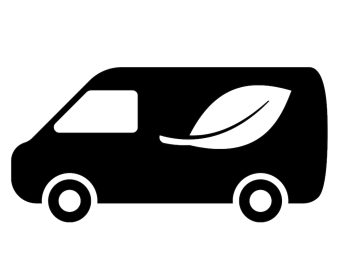The UK new van market has recorded its best April for three years but battery electric van (BEV) uptake continues to decline.

A total of 23,889 new vans, 4x4s and pickups were registered in April; up 5.4% and the highest total for the month since 2021.
Large LCV models, over 2.5 tonnes and up to 3.5 tonnes, were up 3.3% to 15,714 units and continued to prove the most popular – accounting for almost two-thirds (65.8%) of registrations.
Deliveries of medium-sized vans grew by 6.8% to 4,611 units, while the biggest percentage increase was for the smallest vans, up 41.1% – but still representing just 2.5% of the market.
Pickup volumes also rose, increasing by 16.2% to 2,487 units, while deliveries of new 4x4s fell by 17.6% to 473 units, compared with a particularly strong April last year.
But demand for zero-emission LCVs plummeted, down 42.4% to 861 units and accounting for just 3.6% of all new LCV registrations compared with 6.6% in April last year.
April traditionally has low registration volumes following the new plate month in March and is subject to volatility. But the SMMT said such a decline in BEV uptake puts green goals at risk – particularly as the new ZEV mandate sets a per manufacturer target of 10% for 2024.
The year-to-date figures also tell a similar story, with EV market share at 4.9%, 0.5% lower than the market share recorded at this same point last year.
The latest SMMT outlook now expects UK new van registrations to grow by 3.3% in 2024 – but the BEV market share has been downgraded to 8.3%, from 9.4% in the January outlook.
BEV volumes are still expected to rise by 44.1% in 2024 to 29,000 units, but uptake is set to remain below the 10% sales target set for manufacturers in the ZEV mandate.
While some flexibilities in the early years of the mandate will help, the SMMT has warned of an urgent need to ramp up van charge point rollout to remove a barrier to the eLCV switch.
It’s also stressed that the Plug-in Van Grant – currently only confirmed until April 2025 – must also remain in place, else the UK risks slowing down road decarbonisation.
Mike Hawes, SMMT chief executive, said: “Manufacturers are investing billions to bring electric vehicles to market, however, uptake is slowing and urgent action is needed. If government is serious about delivery of its ambitious targets, it must deploy an equally bold strategy for delivering van-suitable public charge points across the UK, now the single most important step to get a greener Britain moving.”
Sue Robinson, chief executive of the National Franchised Dealers Association (NFDA), added: “Van buyers need confidence from the Government to make the switch to new EV commercials through measures such as improving charging infrastructure. With the ZEV mandate stipulating that 10% of vans sold by manufacturers this year are required to be zero-emissions or face penalties, it is crucial that incentives are introduced by the Government to drive up demand and meet these targets.”
And Matthew Davock, director of Manheim Commercial Vehicles at Cox Automotive, said the growth in new LCVs was overshadowed by the significant drop in BEV registrations.
“I think there are two factors behind this performance. On one hand, we’re seeing many fleet, rental, and SME van operators review their needs as their utilisation rates fluctuate. On the other, we’re still experiencing a lack of buyer confidence in electrification. Much has been made about government policy needing to support the EV car market, but these numbers show that action in the LCV sector is vital too if operators are to adopt EV LCVs in greater volumes.”

